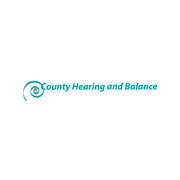Top 5 Non-Genetic Causes of Hearing Loss in Adults

Did you know that hearing loss isn’t always caused by genetics? In fact, congenital issues constitute only one of the many types of hearing loss encountered by audiologists. That’s why the doctors at County Hearing And Balance of Madison, CT, urge patients to learn what lifestyle factors affect hearing and put adults at risk of hearing loss. Here’s a closer look at some of the most common non-genetic risk factors.
What Causes Adult Hearing Loss?
1. Continued Exposure to Loud Noise
 When your mom told you to turn the music down, there was some truth to her nagging. Hearing loss caused by exposure to excessive noise—whether during occupational or leisure-related activities—is more common than most realize. In fact, according to the National Institute of Health, this type of hearing loss affects 24% of Americans between the ages of 20 to 69.
When your mom told you to turn the music down, there was some truth to her nagging. Hearing loss caused by exposure to excessive noise—whether during occupational or leisure-related activities—is more common than most realize. In fact, according to the National Institute of Health, this type of hearing loss affects 24% of Americans between the ages of 20 to 69.
2. Medications
Ototoxic medications can damage your ears. If you take any of the following medications and are suddenly having trouble hearing, speak to an audiologist. Antibiotics like streptomycin and neomycin, loop diuretics, some drugs used for chemotherapy, and high doses of aspirin can result in auditory decline.
3. Head Trauma or Injury
Head trauma isn’t just hard on the brain—it can also affect hearing loss, especially if the individual suffers a temporal bone fracture or is elderly. Hearing loss can be brought on by a traumatic brain injury or hole in the eardrum.
4. Disease or Tumors
Some viruses and bacterial diseases can cause hearing loss, such as meningitis and multiple sclerosis. Although rare, certain tumors can also result in loss of hearing, particularly tumors of the balance nerve, which runs adjacent to the hearing nerve.
5. Aging (Presbycusis)
Old age can also bring on hearing loss, resulting in sounds that are muffled or unclear. There are four types of hearing loss associated with aging: sensory (loss of hair cells), neural (loss of neurons), striatal (flat hearing loss), and cochlear conductive (the thickening of the inner ear membrane). The variety and scope of hearing issues make an annual hearing test essential for senior citizens.
Hearing changes as we age, so regular hearing screenings are a smart idea, particularly if you have one of the above risk factors. County Hearing and Balance provides comprehensive hearing loss services aimed at diagnosing and treating a wide range of conditions. If you think you may be experiencing auditory issues, visit them online or call today at (800) 881-EARS.
About the Business
(1 reviews)
Have a question? Ask the experts!
Send your question

